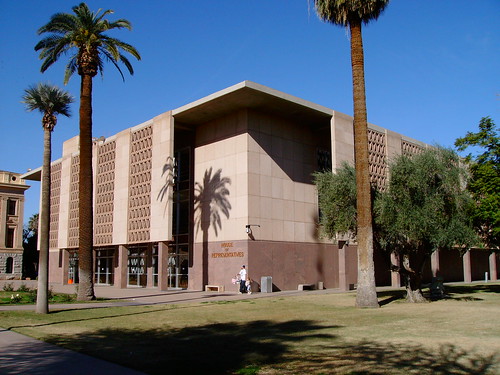[Source: Arizona Republic Editorial] – Budget cutting left the state’s park system seriously wounded. Now, Arizona has to decide if it will leave the parks bleeding. Will the next generation find the kind of robust park experience envisioned by Arizonans who supported state funding for parks with the 1990 Heritage Fund initiative and land acquisition through the 1998 Growing Smarter referendum?
That vision included public support to grow and enrich parks.Or will your grandchildren find a few remnants of an anemic system?
That could be the consequence of years of budget cuts to the state park system, which saw its funding slashed from about $54.7 million in fiscal 2008 to $25.7 million in the past fiscal year.
A report from the state Auditor General’s Office says the Parks Board “was established as a publicly funded agency to provide a system of state parks for the public to enjoy. The loss of state funding … created a need for the state parks system to transition from being publicly funded to paying for its own operating expenditures. However, park receipts have not been sufficient to cover park operating expenditures.”
There was no public outcry to “transition” the parks from state support. In fact, the public repeatedly has used the ballot box to express support for the parks and open spaces.
No wonder. The parks serve a variety of public interests.
Economic: A 2009 study by Northern Arizona University found that state parks visitors had a statewide impact of more than $266 million, plus an additional $22.8 million in state and local taxes. Parks help rural economies.
Recreational: State parks offer hiking, camping and other outdoor experiences.
Educational: Historic landmarks, such as Yuma Territorial Prison State Park, preserve Arizona’s colorful heritage.
Spiritual: Arizona is enriched by the grace, beauty and culture of state parks.
A robust park system says something positive about a state’s vision of itself and its future.
Some might argue that Arizona has plenty of federal land and national parks to satisfy its needs. But Kartchner Caverns, Catalina State Park, Picacho Peak or Tubac Presidio are special, uniquely Arizonan places that deserve state park status. Arizona’s 30 state parks are jewels worth keeping in the public trust for future generations — including your grandkids’.
Arizona’s budget was in deep trouble in 2008 and subsequent years. The Legislature and Gov. Jan Brewer had to make painful cuts. However, in 2010, alternatives were proposed to help keep the parks whole. A proposal for a vehicle-registration fee to provide long-term stable funding for the parks never made it out of committee.
Stonewalling that idea suggests some of our elected officials have philosophical reasons for wanting to limit public funding to the parks. But the voting public supports parks.
The auditor general’s report found that reduced funding, coupled with reduced visitation, create long-term risks for the sustainability of the parks. The report lays out some options for partnerships and other alternatives that are worth exploring.
But state support is essential.
Arizona must move beyond the crisis mentality of recession-era budgets and plan for a state park system worthy of Arizona’s amazing history and eye-popping natural heritage.
It’s time to heal the wounds inflicted on Arizona’s park system.


